Sometimes, our minds can be our worst enemies. No one understands that better than those living with obsessive-compulsive disorder, a group that includes the OCD community here on the Mighty, as well as some of the world’s most famous actors, writers, and musicians. As author John Green put it, Intrusive thoughts can make you feel like a “passenger in [your] consciousness.” Compulsions, on the other hand, are time-consuming and can get in the way of your everyday life.
If you live with OCD, know that you’re not alone. According to the National Institute of Health, approximately 1.2% of American adults live with obsessive-compulsive disorder, a cycle of “uncontrollable, reoccurring thoughts (obsessions) and behaviors (compulsions)” that interfere with your quality of life. Among them are many public figures you know and love. The celebrities listed here have shared their stories in hopes of helping others living with OCD to feel less alone.
1. Mara Wilson
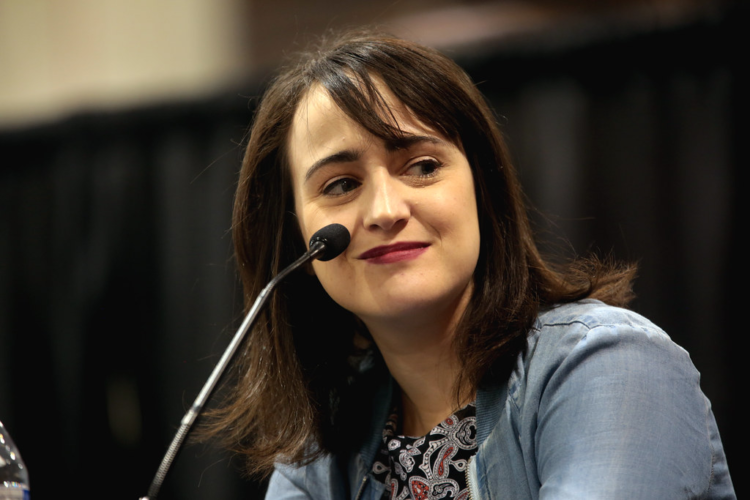
“I was always a very anxious child,” writer and performer Mara Wilson told the Independent. Wilson, best known for her roles in “Mrs. Doubtfire” and “Matilda,” has been living with OCD since she was eight years old, and struggled with anxiety, depression, and panic attacks.
Wilson’s mother was diagnosed with breast cancer when Wilson was very young. As her mother’s condition worsened, thoughts of “sickness and loss” flooded Wilson’s head.
“That’s when I started washing my hands obsessively until they were red and raw and chapped,” Wilson said. “That’s when I started thinking that certain numbers were good or bad, that’s when I started thinking ‘I can’t walk in that crack, I can’t walk through that door.’” She sometimes went days without sleeping or eating. She checked on the family pets “compulsively,” trying to protect them from the destruction she sensed everywhere.
Wilson was formally diagnosed when she was twelve years old. It was one of the best days of her life, she said, “because I knew that I was not alone anymore.”
Now, Wilson is a vocal mental health advocate. She hopes that by sharing her experiences, she can help others living with OCD. “There are so many of us out there with OCD,” she told the International OCD Foundation. “You are definitely not alone!”
2. John Green

In 1998, John Green was living in Moose Pass, Alaska, working at a gift shop. He was depressed but not suicidal, which made it difficult to understand the thoughts he spent almost every waking moment trying to suppress. It was only later that Green realized his experiences were part of his OCD.
“What I was experiencing is called invasive thoughts,” he wrote for Medium. “At the time I felt sort of like I was experiencing some kind of demonic possession.”
Eventually, Green sought help for his OCD, and got better “slowly,” through a combination of medication and cognitive-behavioral therapy or CBT.
In his most recent book, “Turtles All the Way Down,” Green tells a story about Aza Holmes, a teenage girl who lives with OCD. She describes her thoughts as spirals, ever-tightening and inescapable, a series of “light-swallowing wormholes.” Her OCD often terrifies and overwhelms her. But ultimately, her mental illness doesn’t get in the way of her happiness. “I know that girl would go on,” Aza writes to her younger self, “that she would grow up, have children and love them… that you’d go to college, find a job, make a life, see it built and unbuilt.”
3. Camila Cabello

Cuban-American singer Camila Cabello told Latina her struggle with OCD began in late 2015. “I would wake up with a super-accelerated heartbeat and really negative, intrusive, compulsive thoughts,” she said. “I didn’t know what was happening.”
Her OCD was difficult to manage at times. Her thoughts were often difficult to control. “Everybody has different ways of handling stress,” she told Cosmopolitan U.K.. “For me, if I get really stressed about something, I’ll start to have the same thought over and over again, and no matter how many times I get to the resolution, I feel like something bad is going to happen if I don’t keep thinking about it.”
For Cabello, being formally diagnosed with OCD went a long way towards helping her to “step back from it,” she said. “I feel much more in control of it now. To the point where I’m just like, ‘Aha! OK, this is just my OCD.” Moving forward, she wants to remind people who are struggling to “slow down and take care of yourself.”
“You can get help,” she said. “If you’re dedicated to making it better, you can.”
4. Howie Mandel
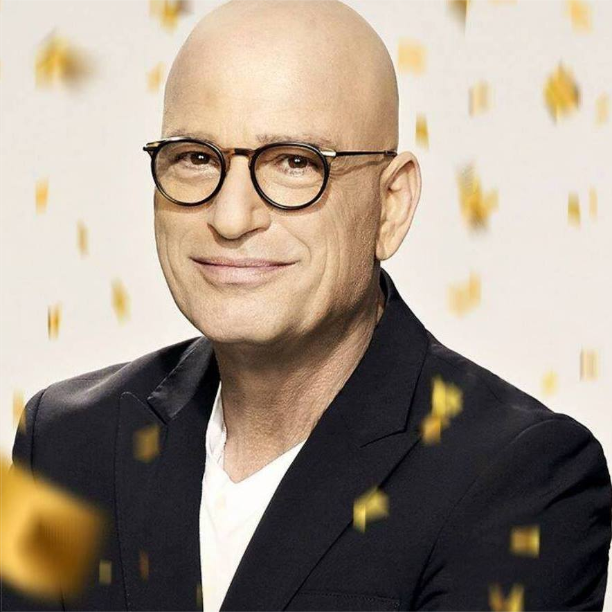
Howie Mandel, a Canadian performer best known for his work on “Deal or No Deal” and “America’s Got Talent,” has been living with OCD for as long as he can remember. “I’m always on the verge of death in my head,” he said, according to ABC News.
Germs are the biggest source of his anxiety. He refuses to shake people’s hands or touch handrails, and will not touch money unless it has been washed. As a child, he pretended not to know how to tie his shoelaces for years, opting to drag his feet everywhere rather than touch the dirty laces.
Even with all of these protective measures in place, Mandel’s thoughts still overwhelm him at times. “The biggest fear I have is being triggered,” Mandel said. “If I’m triggered and I get some weird thought in my head that can’t go, then my day is, is stopped. My life stops.”
Mandel uses his platform to raise awareness about OCD. In 2009, he published a book, “Here’s the Deal: Don’t Touch Me,” where he speaks about his struggles with the illness. He even testified about his experiences in Congress. He hopes that in speaking openly about OCD, he can help to remove the stigma that has been attached to mental illness.
“You know, in the middle of a workday, wherever you work in America, if you got up and say, ‘I’m going to go to the dentist,’ nobody would even flinch,” Mandel said. An appointment with the psychiatrist should be treated the same way.
5. Alison Bechdel
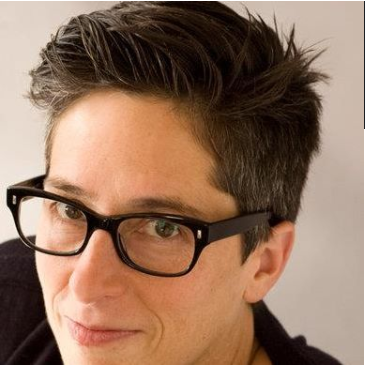
Alison Bechdel, bestselling author of “Fun Home: A Family Tragicomic,” struggled with OCD as a child. “My actual obsessive-compulsive disorder started when I was ten,” she wrote.
Bechdel spent much of her energy avoiding “odd numbers and multiples of thirteen.” She could only step through a doorway if “the number of edges of flooring was even.” If she failed in this, she had to mutter a “special incantation” under her breath, along with hand gestures.
A filmy, “noxious substance” covered everything, and Bechdel found herself constantly brushing it out of her way. She spent several minutes every night lining up her shoes perfectly, so as not to give preference to one or the other (“The left one was my father, the right one was my mother”). In short, “life had become a laborious round of chores.”
6. Suga

Suga, lead rapper for K-pop band BTS, lives with OCD, depression and social anxiety. In his song, “The Best,” recorded on a solo mixtape, he raps about the “anguish” that can come with living with a mental health condition. “Depression, OCD/ They keep coming back from time to time,” he says. “At times I’m scared of myself.”
Mental illness and suicide are heavily stigmatized in Korean society, but Suga has been open about his struggles. In doing so, he’s helping break down the stigma attached to mental health conditions. Following K-pop idol Jonghyun’s death by suicide, Suga told Billboard, “I really sympathized with him.” He hopes that moving forward, those who are suffering won’t have to do so alone. He said:
I really want to say that everyone in the world is lonely and everyone is sad, and if we know that everyone is suffering and lonely, I hope we can create an environment where we can ask for help, and say things are hard when they’re hard, and say that we miss someone when we miss them.
7. Maria Bamford
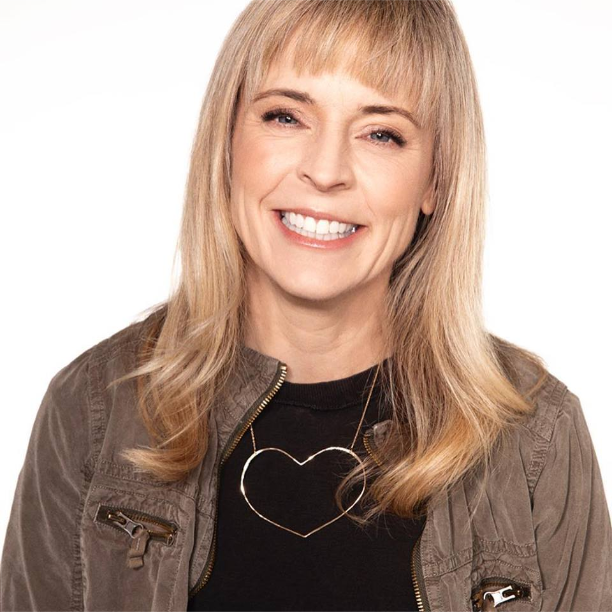
Maria Bamford, a comedian who stars in Netflix’s “Lady Dynamite,” used to struggle with harm OCD, a subset of OCD, as well as bipolar disorder and suicidal thoughts. People living with harm OCD experience intrusive thoughts that involve hurting the people they love. Despite the distressing nature of these thoughts. they do not make people with OCD more prone to violence.
“When I was about nine years old,” Bamford told NPR, “I stopped being able to sleep at night ‘cause I had a fear that I was going to kill my parents.” When Bamford was thirty-five, she went into therapy for her OCD, which proved to be very effective. “Something that had plagued me for my entire life was gone,” she said.
Now, she uses her experiences with mental illness to make people laugh. It gives her hope to see that there’s a place for stories like hers in the world of comedy, and in society at large.“I’ve felt there’s been so much more support and openness about mental illness,” she told Vox. “It’s really wonderful.”
8. Corey Hirsch
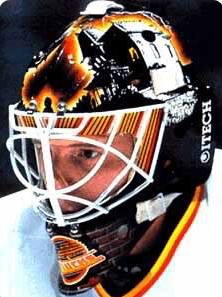
“I can still recall the exact moment that my brain started lying to me,” Corey Hirsch, a retired NHL player, wrote for the Players’ Tribune. He was twenty-one years old when it happened, a “black ace” just getting his start in professional hockey. He was sitting in a bar with some other players when something shifted. “I had this thought. It was a horrible, ridiculous, dark thought,” he wrote of it.
He expected it to pass, like “a flash in your mind,” as most unwanted thoughts do. Instead, “it kept repeating and repeating.” And the more he tried to get it out of his head, the larger it loomed. “The thought hammered me,” he wrote. “I could barely breathe.”
The thoughts were still there when he lay down to sleep that night, and he woke up to them the next morning. Over the next few years, the thoughts grew steadily worse. He tried to end his life at twenty-two. Finally, about five years after that first day at the bar, he told his trainer what he had been going through. He knew that he would not survive otherwise.
Hirsch was diagnosed with OCD that year, which “changed everything.”
Now, Hirsch wants people who are struggling to know, “there is help, and there is hope.”
“There is a light, however faint, in all this darkness. There is help out there for you. There is hope… you will reach the light.”
9. Rose Cartwright

When Rose Cartwright was five years old, she was sure the conflict in Bosnia “would come for my family,” she wrote for the Guardian.
When she was fifteen, an image of an undressed child flashed in her head. She sat back, horrified, feeling “the corners of [her] world” fold inwards. For years afterward, she would shudder in her bedroom alone of nights, begging God to forgive her the awful thoughts that had invaded her head. She would crawl into the bathroom and bite down on the toilet paper roll to prevent herself from screaming.
When she was twenty, after years of unwanted thoughts, doubts about her identity, and a suicide attempt, she finally found a name for the illness she had been living with for the past decade. A therapist confirmed her diagnosis, Since then, things have gotten slowly better.
Cartwright wrote a book, “Pure,” based on her experiences with primarily obsessional OCD also known as Pure O. Her book has since been adapted into a television show for Channel 4 in the U.K. She hopes that as more people learn about OCD, it will become less stigmatized. And she knows, now, her unwanted thoughts do not make her a bad person.
“I was not the author of them, I was the observer,” Cartwright wrote. “I’d been telling stories about myself in my mind my entire life. And I could let those stories go.”
10. Marc Summers

Marc Summers, best known for his work on “The Food Network” and Nickelodeon’s “Double Dare,” shared his experiences with OCD with Oprah Winfrey. “I would go down Madison Avenue and read a sign nine or ten times,” he said. “You tell yourself, if you don’t read the sign exactly, that the plane will crash on the way home. Meredith won’t get the part that she’s auditioning for.”
He said his compulsions ranged from “touching the wall a certain way” to making sure he entered a room using the right number of steps or cleaning.
Summers wrote a book about his experiences and recorded a series of videos for Freedom from Fear, a charity dedicated to helping people with mental illness.
11. Shannon Purser
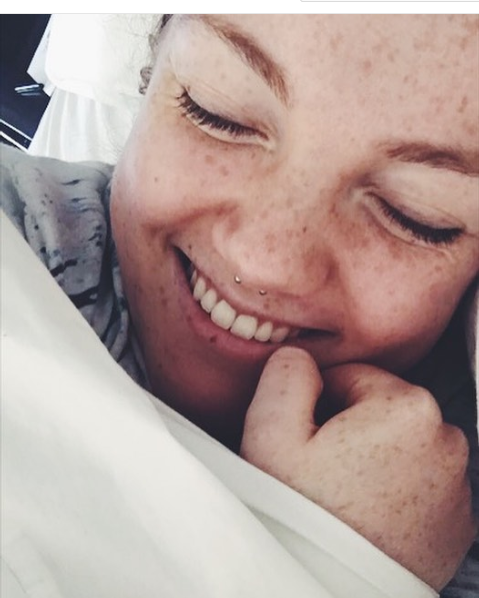
Shannon Purser, an actor best known for her work on “Stranger Things” and “Sierra Burgess is a Loser,” lives with OCD and depression. She wrote about her experiences in an essay for Teen Vogue.
Purser was “raised religious,” she wrote, and with that upbringing came deeply ingrained notions of right and wrong. Lies, she said, were among the things she considered especially “sinful.” It was also something she’d done a lot as “a little kid,” and looking back as a teenager, Purser felt a tight coil of guilt growing in her stomach.
Once OCD was thrown into the mix, her fear of lying spiraled out of control. “I became obsessed with the idea I was being insincere,” Purser wrote. “I thought, what if I wasn’t really sorry? That would make me a liar.” She picked away at every sentence, trying to find the words that would allow her to “feel at peace.” A lot of the time, this was impossible. “I just decided not to talk,” Purser wrote.
Purser’s troubles with words were not the worst she would deal with in her struggles with OCD. “My disorder not only caused me to fixate on certain thoughts or images,” Purser wrote. “[It] curated ones that were specifically disturbing to me and bombarded me with them.” Intrusive thoughts that were “super-sexual or violent” pushed themselves to the fore, and seemed to worsen with time.
As the days wore on, it was not just Purser’s happiness that was under threat — her sense of self was crumbling beneath her. “I felt dangerous. I thought I deserved to die, and I felt utterly alone,” she wrote.
On one especially difficult night, Purser finally shared her feelings with her mother. And after stumbling across an article about OCD online, she realized that the thoughts she was having were due to a “treatable disorder.” There was nothing wrong with her at all.
Purser entered therapy and started taking medication. “I got better,” she wrote. “I learned to love life again. My problems didn’t go away, but they became much easier to face.”
If you struggle with OCD in any of its forms, you are not alone. There is a supportive community here at The Mighty that you can interact with by posting a thought or question with the #OCD.
For more about OCD, check out these articles:

